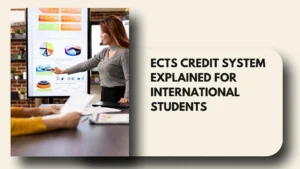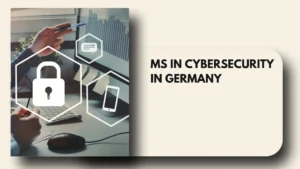- Austria offers affordable masters degrees with public universities charging only €1,453 annually for non-EU students.
- Popular masters courses in Austria include Artificial Intelligence, Data Science, Engineering, Business Management and Healthcare Sciences.
- The Red-White-Red Card allows master’s graduates in Austria with a valid job offer to work full-time for 24 months.
- Masters in Austria: Top Reasons to Study
- Top Universities in Austria
- Masters in Austria: Popular Masters Courses
- Study Intakes in Colleges in Austria
- Eligibility Criteria for Masters in Austria
- Documents Checklist
- Application Deadlines for Masters in Austria
- Jobs in Austria for Indian Students
- Student Visa for Austria
- Post-Study Work Visa Options in Austria
- Cost of Living in Austria
- Conclusion
- FAQs

Under Masters in Austria, international students have access to a diverse range of academic courses. Austrian colleges offer cost-effective and affordable study programs that focus on qualitative education and research approaches.
The country is also famous for its beautiful landscapes and peaceful community. We have presented you with a blog that includes the top reasons to study in Austria, including the best universities, popular courses, eligibility criteria, application process, and much more.
Masters in Austria: Top Reasons to Study
Austria is a country in southern-central Europe, bordering Switzerland, Germany, Hungary, and the Czech Republic. It encompasses the enormous beauty sculpted by high mountainous ranges, a wide distribution of lush green forests, and magnificent scenery of flowing rivers.
Although the country is world-renowned for tourist attractions, it is also known for providing the best educational ecosystem.
According to India’s Ministry of External Affairs, approximately 500 Indian students are currently enrolled in Austrian universities, forming part of a broader Indian diaspora of 31,000 people living in Austria.
Let’s discuss some of the reasons why Indian students prefer to study in Austria.
1. Affordable Education
For non-EU/EEA students, public universities charge €726.72 per semester (approximately €1,453 per academic year), plus a mandatory student union fee of €24.70 per semester. Universities of Applied Sciences charge between €727-€7,500 per semester depending on the program, while private universities range from €3,000-€35,000 annually.
2. Exploration of Cultural Beauty
Indian students pursuing masters in Austria often get a chance to explore the cultural and artistic beauty that has shaped the traditional history of the Austrian community for years. Austria is famous for its architectural charm and unique combination of arts, music, writing, and fashion that captivates visitors, including students.
3. Access to other parts of Europe
Austria’s unique location provides access to other European countries, which helps international students find employment in the broader area.
It also provides opportunities for Indian students to visit several European destinations for leisure, higher education and research work.
4. Opportunities to Learn German
German is Austria’s official language, an essential prerequisite for participating in the country’s working, economic, and social life. Although colleges in Austria offer most of the academic courses in German, some English-taught programs are also available for international students.
This provides sufficient reasons for students to learn German since it improves their communication skills and generates part-time job options.
5. Safe and Peaceful Environment
The local Austrian community’s attitude towards international universities is both welcoming and heartwarming, preventing homesickness and loneliness.
Top Universities in Austria
Austrian universities differ in structure and academic goals. Traditional universities like the University of Vienna and the University of Innsbruck offer a wide spectrum of academic disciplines to suit every taste.
On the other hand, the University of Applied Sciences provides technical and medical courses. The Institute of Fine Arts, for example, covers arts, music, drama, and other applied arts.
The duration of a masters in Austria is 1-2 Years, depending on the course and university.
Below, we have tabulated the list of top universities in Austria, their QS World Ranking 2026 and annual tuition fees.
| University | QS World University Rankings 2026 | Tuition Fees (Per Year for Non-EU Students) |
|---|---|---|
| University of Vienna | 152 | €1,453.44 + €50.40 ÖH fee (INR 1.58 Lakhs) |
| Technische Universität Wien (TU Wien) | 197 | €1,453.44 + €50.40 ÖH fee (INR 1.58 Lakhs) |
| Universität Innsbruck | 350 | €1,453.44 + €50.40 ÖH fee (INR 1.58 Lakhs) |
| Graz University of Technology | 427 | €1,453.44 + €50.40 ÖH fee (INR 1.58 Lakhs) |
| Johannes Kepler University Linz | 473 | €1,453.44 + €50.40 ÖH fee (INR 1.58 Lakhs) |
| Paris Lodron University of Salzburg | 650 | €1,453.44 + €50.40 ÖH fee (INR 1.58 Lakhs) |
| Karl-Franzens-Universität Graz | 668 | €1,453.44 + €50.40 ÖH fee (INR 1.58 Lakhs) |
| University of Klagenfurt | 697 | €1,453.44 + €50.40 ÖH fee (INR 1.58 Lakhs) |
Masters in Austria: Popular Masters Courses
The Austrian higher education system distinguishes between universities and universities of applied sciences (Fachhochschulen or FH). Universities of applied sciences might charge higher fees.
Private universities often have higher tuition fees than their public counterparts.
Below, we have mentioned some of the most popular academic courses and subjects international students prefer to study in Austria.
- Artificial Intelligence
- Arts, Music & Drama
- Biotechnology
- Business Management
- Communication Studies
- Computer Science
- Data Science
- Economics
- Engineering & Technology
- International Business
- Medical and Health Care Sciences
- Natural Sciences
Study Intakes in Colleges in Austria
The academic year in top universities in Austria begins in October every year and ends on September 30th of the following year.
Austrian universities follow a two-semester system: the winter semester commences in October, and the summer semester begins in March or April of the following year. The application deadlines vary across universities and courses.
| Semester | Intake month | Application Cycle |
|---|---|---|
| Winter | October | May/June-September/October |
| Summer | March-April | November/December-February/March |
Eligibility Criteria for Masters in Austria
Below are the general guidelines for pursuing an MS in Austria. They may vary depending on the course and the university/applied university.
International students must have completed a minimum three-year relevant bachelor’s degree (or at least six semesters) relevant bachelor’s degree.
Academic Proficiency:
- A minimum CGPA of 6.5-8.0 is required on a scale of 1-10.
- A minimum GPA of 60-75% is also accepted.
- As per Austrian standards, the minimum GPA should be 2.5-3.5 (out of 5) to become eligible for admission to master courses.
- Specific subject-related knowledge and skills are required.
- International students must qualify for the entrance test conducted by the University of Applied Sciences, medical universities and the University of Arts.
English Proficiency: Indian students applying for masters courses must have the following English language proficiency. English language proficiency may differ from university to university.
- TOEFL iBT: A minimum score of 90-100 (most programs)
- IELTS: A minimum overall band of 6.5-7.0 (most programs) Note: Requirements vary significantly by university and program.
Documents Checklist
The documents required for a Masters in Austria vary by course or program.
However, some standard documents include:
- Completed University Application
- All Previous Academic Transcripts and documents
- Passport-size photo
- Score certificates for language proficiency tests like TOEFL/IELTS/PTE/Certificate of Proficiency in English (CPE)
- Score certificates for standardised tests like GMAT/GRE, etc. (if required)
- 2-3 Letters of Recommendation
- 1-2 Statement of Purpose
- CV/Resume
- Work Experience certificate (if required)
- Non-refundable application fee (if applicable)
- Health Insurance
- Criminal background check certificate
Financial Proof Requirements
You must show evidence that you have the money to fund your stay in Austria. As of 2025, students must demonstrate:
Minimum €950–€1,100/month (₹97,669–₹113,091) for students under 24
Minimum €1,100–€1,300/month (₹113,091–₹133,653) for students aged 24 and above
Additional funds if accommodation costs exceed €376.27/month (₹38,691)
Application Deadlines for Masters in Austria
- The academic year in Austria begins on 1 October (winter semester), and the summer semester starts on 1 March. However, Public universities mainly offer masters courses in the winter semester.
- At public universities in Austria, non-EU/EEA applicants must usually apply for masters by July, whereas the same can vary in UAS from March to June/July.
- Private universities in Austria have their key dates and allot seats on a rolling basis until all vacancies are filled.
Jobs in Austria for Indian Students
Below, we have tabulated the popular industries in Austria along with their top recruiters and the average salary that they offer to international students after completing a Masters in Austria
The average salary may depend on several factors like age, experience, employer, locality, etc.
| Top Industries | Top Recruiters | Average Annual Salary (EUR/INR) |
|---|---|---|
| Artificial Intelligence | Oracle, Intel, Nvidia, Google, AWS | €65,000 – €150,000 (₹66.8 – ₹154.2 Lakh) |
| Business Management | Bain & Company, Deloitte, KPMG, McKinsey & Company | €48,000 – €111,000 (₹49.3 – ₹114.1 Lakh) |
| Engineering & Technology | Accenture, AVL, ANDRITZ, Bitpanda, Infineon | €66,500 – €95,000 (₹68.4 – ₹97.7 Lakh) |
| Healthcare Sciences | Abbott, Takeda, Boehringer Ingelheim, Cleveland Clinic | €40,000 – €120,000 (₹41.1 – ₹123.4 Lakh) |
| Media & Communication | Red Bull Media, ORF, Styria Media Group, APA | €47,000 – €80,000 (₹48.3 – ₹82.2 Lakh) |
Student Visa for Austria
To study in Austria, Indian students must apply for a student residence permit at least 3-6 months before the commencement of the academic program. The processing time can take 3-6 months, so early application is crucial. It is recommended to apply immediately after receiving your university admission letter.
Since the duration of the masters courses is more than six months, they are required to apply for Visa D to enter the country.
The entry visa or Visa D application process can be completed at the local embassy or consulate in the home country.
Indian students can visit the Embassy of Austria in New Delhi to apply for an entry visa.
Application for Student Residence Permit
Indian students must apply for a student resident permit for Austria as soon as they receive an acceptance letter from the university or the University of Applied Sciences. Student residence permits grant a stay to international students in Austria for higher studies that lead to completing a master’s degree.
Application Process
Indian students can apply for a student residence permit and Visa D together by visiting the local Austrian embassy.
Application Cost
The application fee for the student residence permit is €212 (approximately ₹21,800). Additionally, the student visa fee is €195 (₹20,000)
Requirements
- Letter of acceptance from the educational institution
- Travel document
- Passport size photograph
- Proof of sufficient financial means to cover the living costs
- Students must provide additional funds if accommodation costs exceed €376.27/month
- Valid health insurance to cover all medical and pharmaceutical expenses
- Evidence of origin of funds
- Bank Statement (last six months)
- Health Insurance to cover medical and pharmaceutical expenses
- English language requirements
- Passport
- Photocopies of all the original documents
Post-Study Work Visa Options in Austria
Austrian graduates get 12 months job search time, then transition to employer-sponsored work permits and eventual permanent residency through a clear three-stage pathway.
1. Job Search Extension (12 Months)
Master’s/PhD graduates can extend student permits for job search. Work up to 20 hours/week with employer permit. Requires €889.84/month (age 24+) or €568.15/month (under 24), plus health insurance (€73.48/month) and accommodation proof. Apply 3 months before permit expires.
2. Red-White-Red Card for Graduates (24 Months)
With a 30+ hour/week job offer matching your qualification, apply for employer-tied work permit. No points system, no fixed salary minimum, no labor market test. Salary must meet collective bargaining agreements. Fee: €212. Processing: ~8 weeks.
3. Red-White-Red Card Plus (Unrestricted)
After 21 months employed on RWR Card, switch to unrestricted employment (any employer, any job). Valid 1-3 years based on settlement duration. Requires €1,273.99/month income, accommodation, health insurance. Fees: €212 total.
Permanent Residence
After 5 years legal residence: apply for “Long-term Resident – EU” status with B1 German. Valid 5 years, renewable indefinitely.
Cost of Living in Austria
Students in Austria generally spend €950–€1,200 per month (₹97,698–₹1.2L) depending on city and lifestyle. Tuition fees are additional and vary by university and program.
Below is the table that showcases the general breakdown of the cost of living in Austria for Indian students.
| Expenses | Estimated Monthly Cost (in € / ₹) |
|---|---|
| Accommodation (student hall or shared flat) | €400 – €900 (₹41,136 – ₹92,556) |
| Food / Groceries | €150 – €300 (₹15,426 – ₹30,852) |
| Transportation (public transit) | €30 – €60 (₹3,085 – ₹6,170) |
| Utilities & Internet | €60 – €150 (₹6,170 – ₹15,426) |
| Health Insurance | €60 – €120 (₹6,170 – ₹12,341) |
| Leisure / Miscellaneous | €50 – €150 (₹5,142 – ₹15,426) |
| Total Living Expenses (average) | €950 – €1,200 (₹97,698 – ₹1,23,408) |
Conclusion
Austria offers affordable, high-quality master’s education through its public universities, making it one of Europe’s most value-driven study destinations for Indian students. With eight Austrian universities ranked in the QS World Rankings 2026—including the University of Vienna at #152—you gain access to globally respected programs across engineering, business, computer science, and the arts.
International students enjoy affordable living costs, free or low tuition, and 12 months of post-study job search time, supported by the Red-White-Red Card pathway to permanent residency. Austria’s strategic central location within Europe also allows easy travel and career mobility across EU countries.
Take the first step toward your Austrian education journey. AdmitX provides end-to-end support—from university shortlisting and SOP reviews to visa guidance and scholarship assistance.
- University Selection Guidance
- SOP Review
- Study-Abroad Document Templates
- Free IELTS Bootcamp Course
- Scholarship Assistance
- Visa Support Services
Book your FREE study-abroad counselling session today!
FAQs
What are the differences between private and public universities in Austria?
Public universities in Austria provide affordable, high-quality education. They are also well-regarded for their teaching and research contributions. Private universities offer students more attentive and specialised attention.
Is it necessary to learn German to study in Austria?
Most of the masters courses in Austrian universities are available in German since it is the first language of the country. However, courses are available in English, too, for which German proficiency is not required.
How much do public universities in Austria charge international students for masters programmes?
Public universities charge €1,453 per year plus a mandatory €49.40 student union fee for non-EU/EEA students.
What is the typical duration for completing a masters degree in Austria?
Masters programmes in Austria typically require 1-2 years depending on the specific course and university chosen.
What IELTS score do Indian students need for masters admission in Austria?
Most programmes require an overall IELTS band score of 6.5-7.0, though requirements vary by university.
Can Indian students work part-time whilst studying for their masters in Austria?
International students may work up to 20 hours weekly during term time without requiring separate work permits.
Is German language proficiency mandatory for all masters programmes in Austrian universities?
Many programmes are offered entirely in English, though German proficiency enhances employment prospects and daily life.
Do Austrian universities require GRE or GMAT scores for masters admissions from India?
Most programmes don’t mandate GRE/GMAT unless specifically mentioned by the university or business school.
Can masters graduates from Austria apply for jobs elsewhere in the European Union?
Graduates may seek employment EU-wide, though work permits depend on individual country regulations outside Austria.
What health insurance coverage do international masters students require in Austria?
Students need comprehensive health insurance covering all medical and pharmaceutical expenses, costing approximately €60-€120 monthly.
If you are an aspirant looking to study at your dream university, book an appointment with AdmitX today and start your applications early to avail yourself of all the benefits.
















